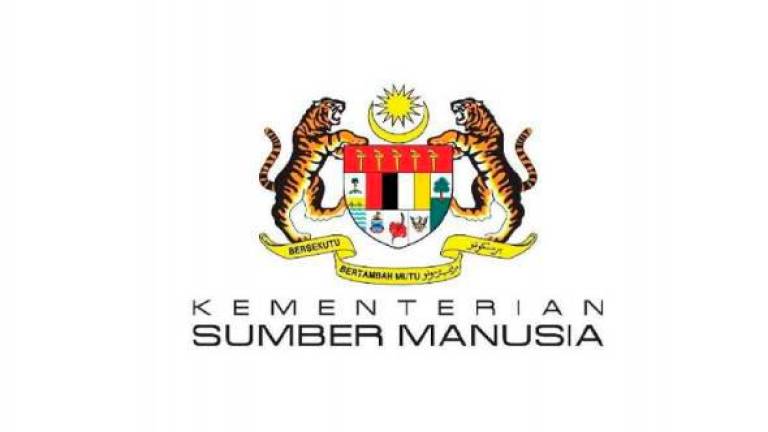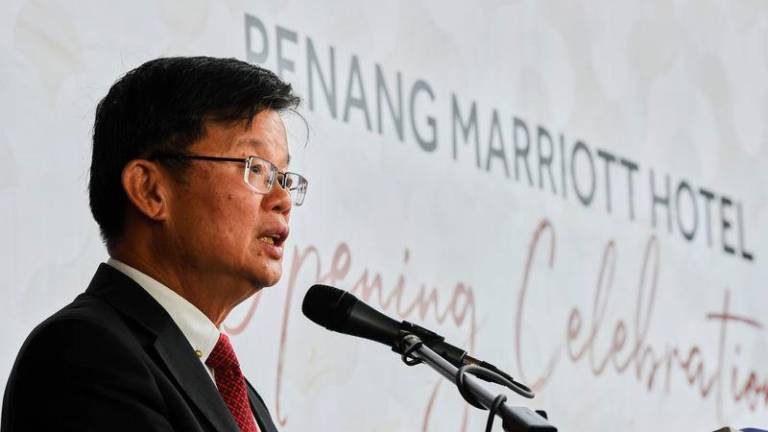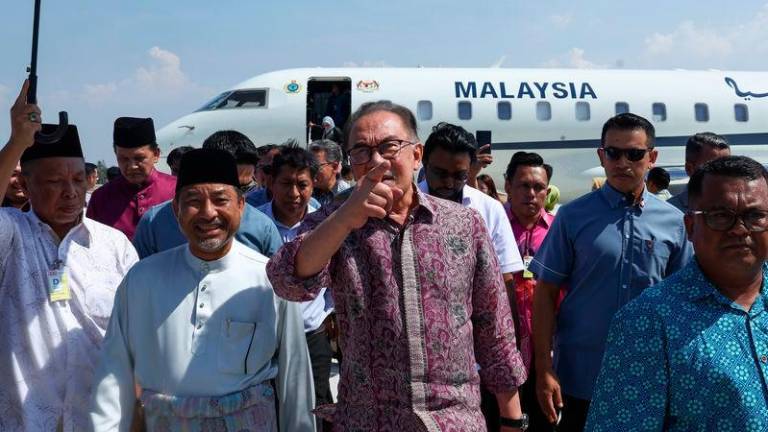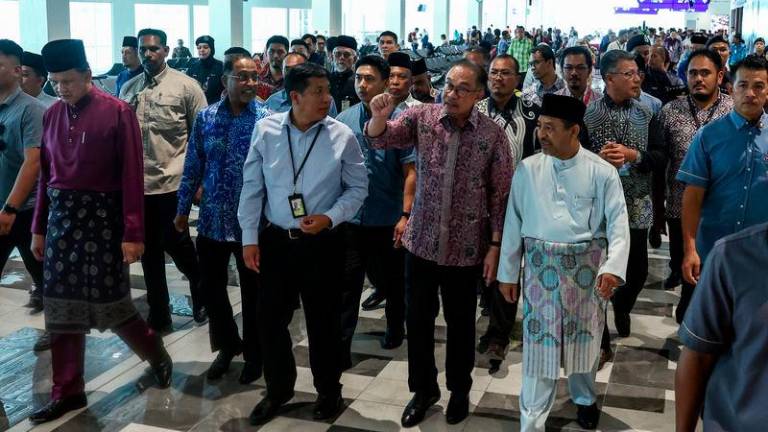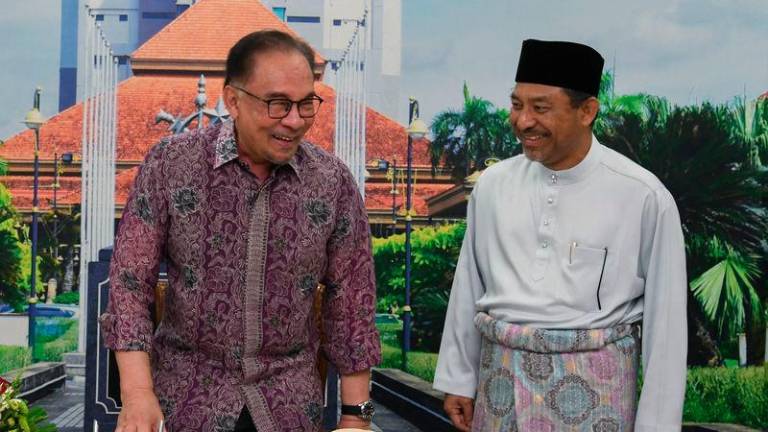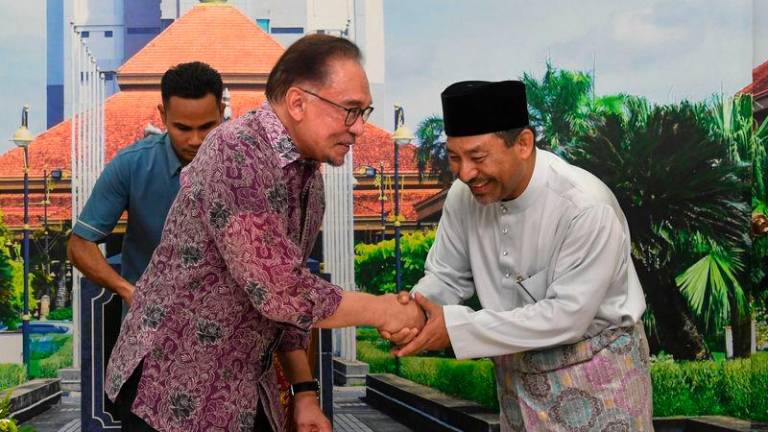IT was indeed an inspiring experience witnessing the launch of a simple but meaningful mobile application, an outcome of an innovative initiative by the technology-driven Tata Consultancy Services (Tata) Malaysia, last Friday at the Malaysia Tourism Centre (Matic) in Jalan Ampang, Kuala Lumpur.
Cancer in children is rising and the increasing cost of treatment is beyond the reach of those from the lower-income group, hampering the alleviation of suffering, which can lead to other complications, including death.
During a casual visit to the cancer unit of the paediatric ward, Tata CEO Jeevan Rajoo saw the faces of innocent children suffering this deadly disease, who were accompanied by their concerned parents, at their bedside. Only one question ran through his mind as he spoke to the head of the cancer unit: “What can we do more for them?”
Three years since that visit and it has not been without intense and a continuous pursuit to find innovative ways to open the hearts of diverse stakeholders to be involved in providing a safer and more viable opportunity for the children from this group to receive affordable cancer treatment.
The outcome of such a tireless corporate social responsibility (CSR) endeavour resulted in the development of a mobile application called CANSupport, which can now assist doctors and caregivers to better track pain and symptoms of children undergoing cancer treatment.
Additionally, the app will enable caregivers to request support for transportation for children with cancer who are travelling across the country for treatment. The app will also serve as a one-stop centre for all cancer-specific services in Malaysia, by providing easy access to psychosocial services, resources and teleconsultations for cancer patients. This partnership represents an important milestone in improving the quality of care for cancer patients in Malaysia, especially children undergoing treatment.
The seminar, jointly organised by the National Cancer Society of Malaysia with the support of Tata, the Malaysia Aviation Group as well as the Transport and Health Ministries, which brought medical experts, NGOs and mothers of children who are suffering from this deadly disease, was just the prelude to the event.
What was most inspiring was the voice of a mother, a panellist, who spoke from the heart and reminded everyone that cancer in a child can be a problem which, when left untreated, can potentially aggravate the affected cancerous parts of the child, causing the child to be disabled. Hence, the problem can spread from one to the entire family suffering from the consequences and hardships, sometimes psychologically affecting the siblings, especially when they see attention of their parents being lopsided towards the sick member of the family.
The mother narrated the home dynamics of balancing the act and the accompanying stress. It was indeed insightful to gain glimpses of such affected households, which provided an empathetic connection to the event.
The climax was the launch itself by both the Minister of Transport Anthony Loke and Deputy Health Minister Lukanisman Awang Sauni. The fact that the transport minister graced a health-related event speaks volumes of the new government where leaders are willing to move away from the strict regimented confines of their respective ministries to extend their cooperation to other ministries to serve the people.
The minister also expressed gratitude to Malaysia Airlines for supporting the cause in ferrying affected children from wherever they are to the nearest hospital for treatment. However, the minister urged the regional airline MASwings to provide transport from patients’ homes even if it is located in the outskirts to the nearest airport. His ministry has been given instructions to seek the help of Keretapi Tanah Melayu and GRAB to also assist in the transport of these children and their families.
It was obvious when a wave of emotions was unleashed when plaques were presented by the deputy health minister to NGOs and organisations, in acknowledgement of their support towards this initiative.
The intention to help and care is an intrinsic human nature but unless invoked, will remain dormant and possibly be expressed sporadically, when occasions demand. This event is a clear testimony that for sustainability to come into play, intention and willpower must be central to the cause.
Every problem has a solution, but seen from a traditional perspective, the government and its agencies, NGOs, private sectors and volunteers will continue to render resources according to their specific functions and capabilities. However, the time has come to see things from the perspective of the problem and through the eyes of those enduring these challenges.
“What can we do more” is a driving question that is mobilising the involvement of diverse stakeholders to be on the same page to contribute to the different parts of the problem in order to achieve a sustainable solution.
Currently, help is also being sought from bed and breakfast outlets to offer free accommodation and for corporates to sponsor meals to the accompanying family members for the duration of the treatment. This is the kind of Malaysia Madani spirit that can bring change.
Often, our own work can be demanding and commitments gravitate us to a rigid routine, preventing us from a vision of embracing a wider perspective that facilitates better collaboration and cooperation with others. This will make our jobs lighter, and we can learn from the rich experiences of others.
The ones who have to go through this deadly disease will need to endure this painful and horrifying experience. It is humanistic of all others to contribute in some way, especially time and energy, to support the cause of care. This emphatic connection transcending race and religion is yet another manner of unifying all of us for a cause.
It is evident that Tata’s drive for this CSR initiative is based on the selfless tradition and ethos of philanthropy by its founding fathers 150 years ago. The tangible effects are what we see during an event like this. The intangible effects are immeasurable and inexpressible, and last longer. Kudos to all.
Prof Dr Suresh Govind FASc is an honorary professor at University of Malaya, chairman of the Board of Trustees for Yayasan Perpaduaan Malaysia, director of Sathya Sai Academy for Human Values and Coordinator for Friendship Group for Inter-religious Service. Comments: Currently, help is also being sought from bed and breakfast outlets to offer free accommodation and for corporates to sponsor meals to the accompanying family members for the duration of the treatment. This is the kind of Malaysia Madani spirit that can bring change.
Often, our own work can be demanding and commitments gravitate us to a rigid routine, preventing us from a vision of embracing a wider perspective that facilitates better collaboration and cooperation with others. This will make our jobs lighter, and we can learn from the rich experiences of others.
The ones who have to go through this deadly disease will need to endure this painful and horrifying experience. It is humanistic of all others to contribute in some way, especially time and energy, to support the cause of care. This emphatic connection transcending race and religion is yet another manner of unifying all of us for a cause.
It is evident that Tata’s drive for this CSR initiative is based on the selfless tradition and ethos of philanthropy by its founding fathers 150 years ago. The tangible effects are what we see during an event like this. The intangible effects are immeasurable and inexpressible, and last longer. Kudos to all.
Prof Dr Suresh Govind FASc is an honorary professor at University of Malaya, chairman of the Board of Trustees for Yayasan Perpaduaan Malaysia, director of Sathya Sai Academy for Human Values and Coordinator for Friendship Group for Inter-religious Service. Comments: letters@thesundaily.com




